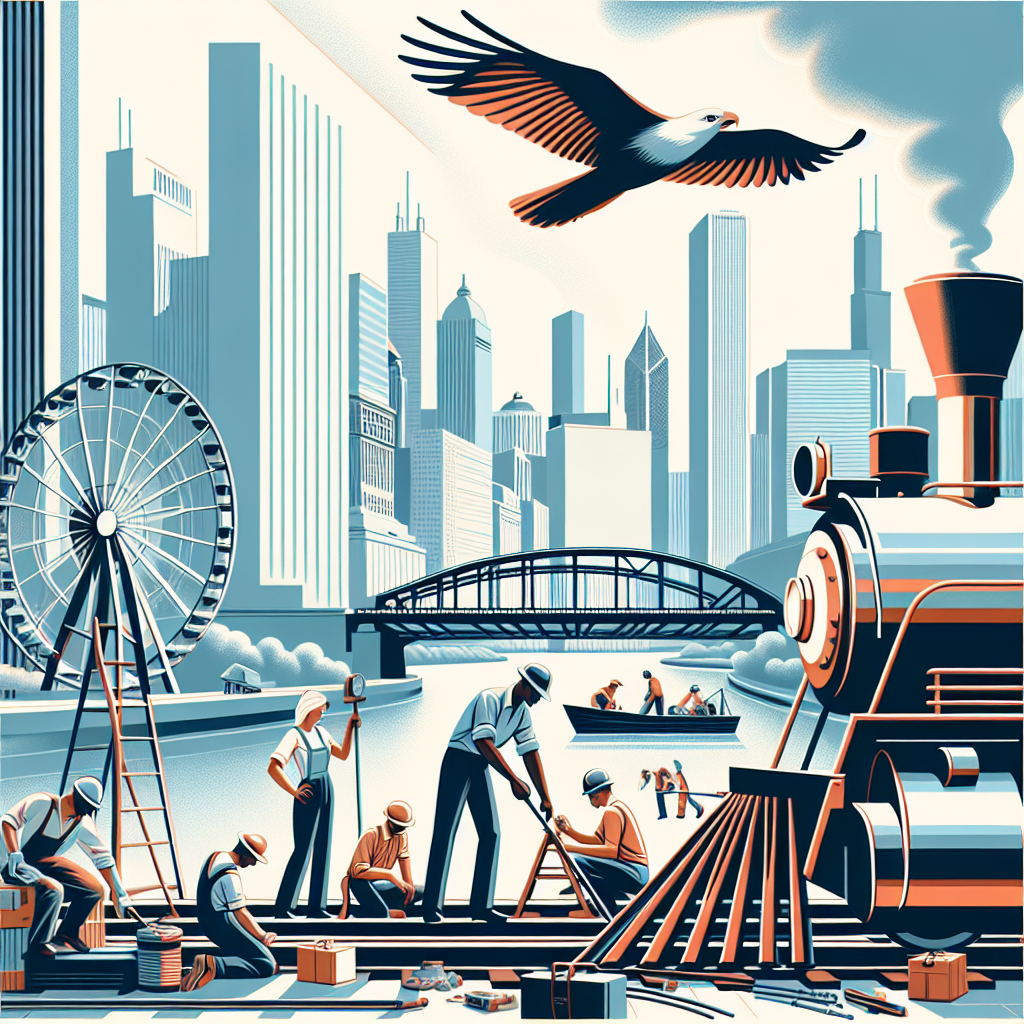Chicago offers a surprising number of no-cost pathways into railroad work, from entry-level positions to apprenticeships and certifications. Free Railroad Careers Chicago Resources and Insights can help you navigate where to find training, how to qualify for hiring events, and which organizations in the region provide tuition-free or low-cost preparation. This guide focuses on practical steps and local contacts so you can move from researching to applying with confidence.
How to find free training and apprenticeship programs
Several local and regional organizations partner with freight and commuter railroads to offer apprenticeships, on-the-job training, and classroom instruction at little or no cost to trainees. Look for programs run by community colleges, workforce development boards, and labor unions. Apprenticeships often include paid work while you train, which reduces financial barriers.
Where to check locally
Start with these types of resources in Chicago:
- City Colleges and technical schools that offer transportation or mechanical technology programs.
- Union halls and apprenticeship coordinators for conductor and maintenance roles.
- Regional workforce centers that post railroad hiring events and can connect you to free preparation classes.
- Employer-run training centers for major carriers that occasionally host open-enrollment sessions or pre-apprenticeship bootcamps.
Free railroad career resources in Chicago for jobseekers
Chicago-based resources frequently include resume workshops tailored to the transportation sector, mock interviews focused on safety procedures, and assistance obtaining required medical or background clearances. Veterans and career changers can often access priority services through veteran employment centers or targeted reentry programs.
Application tips specific to rail jobs
Rail employers value punctuality, reliability, and clear safety-minded communication. Highlight any experience with heavy equipment, mechanical repair, logistics, or customer service. If you lack rail-specific experience, emphasize transferable skills like teamwork, attention to detail, and certifications such as CPR/First Aid or OSHA 10-hour where applicable.
Networking, unions, and hiring events
Networking remains one of the fastest routes into a rail career. Attend local hiring fairs and union information sessions to meet hiring managers and apprenticeship coordinators. Many railroads in the Chicago region also post openings directly on their career pages and host recruitment days at employment centers.
For those exploring non-traditional entry points or career changes later in life, there are also resources addressing major transitions; for example, guidance on starting fresh new career paths for women at midlife is available and can be helpful when considering a move into trades like railroading: guidance for starting fresh new career paths for women at 50.
Certifications and clearances commonly required
Depending on the role, you may need industry-specific certifications or to pass certain federal or carrier-specific background checks. Common requirements include:
- Drug and alcohol screening programs.
- Federal background checks and medical fitness assessments.
- Specific safety training modules and on-the-job qualification for roles such as conductor or engineer.
Where to learn more about job outlook and wages
Understanding the labor market and typical pay scales helps you set realistic goals. The U.S. Bureau of Labor Statistics provides a clear overview of railroad occupations, expected growth, and wage trends for transportation and rail workers, which is useful when comparing positions or negotiating offers: Bureau of Labor Statistics overview of railroad occupations.
Quick checklist before applying
- Update your resume to reflect transferable and safety-related skills.
- Gather documentation: ID, proof of education, and any certifications.
- Attend a local hiring event or apprenticeship info session.
- Sign up with your regional workforce center for job alerts and free classes.
FAQ
Q: Are there free courses to prepare for railroad apprenticeships?
A: Yes. Workforce development agencies, community colleges, and union apprenticeship programs often offer free or subsidized pre-apprenticeship training that covers safety, basic mechanical skills, and job-readiness.
Q: Do I need prior rail experience to get hired?
A: Not always. Many entry-level roles accept applicants with little to no rail experience if they complete employer-provided training or an apprenticeship. Emphasize reliability and any technical or safety-related skills you already have.
Q: How can I learn about employer-specific hiring events in Chicago?
A: Check regional workforce center calendars, union postings, and carrier career pages. Attending general transportation job fairs is also an effective way to meet multiple employers at once.



